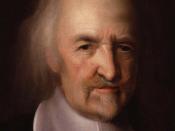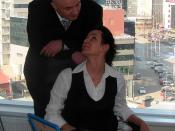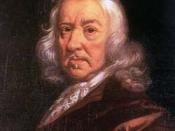AP European History P1
Romanticism Essay
1/16/13
After the age of Napoleon, many political and social changes occurred in order to reorganize and reform Europe. These changed also brought forth the emergence of a new intellectual movement known as Romanticism. This movement was a response against the ideas and thought of the Enlightenment. As opposed to the rational and empirical basis of Enlightenment thinking, Romanticism focused on more spiritual ideals as well as the arts, including literature, music, and architecture. The ideas on religion also transformed between these two periods. Enlightenment advocates would have stressed the existence of a rational God who is justified and logical, while Romantics would have emphasized the importance of a spiritual relationship between God and man. These opposing ideas can be seen in the writings and works of Enlightenment and Romantic writers throughout Europe. Kant and Rousseau were among the most famous Enlightenment writers whose works contributed to the subjects such as sociology and psychology.
Romantic writers such as Wordsworth, Lord Byron, and Goethe wrote poems and stories which reflected on spiritual and emotional truths rather than those of scientific study. Romanticism challenged Enlightenment views of human beings and the natural world in almost all ways, and this challenge showed the contrast of the religious views between the Romantic and Enlightenment movements concerning the relationship between God and the individual.
The views of the Enlightenment embodied rational and logical thinking. Enlightenment thinkers held that humans were capable of understanding everything about the natural world and that man can use this knowledge to achieve economic growth and moral improvement. The Enlightenment was a time of scientific discovery and a renewed interest in the laws of physical nature. Isaac Newton was one of the pioneers of intellectual study during the Enlightenment, and his works brought...


